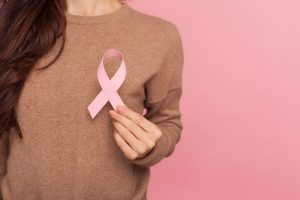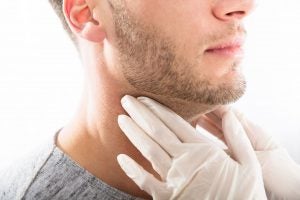Soy — which comes from soybean plants and is one of the largest commodities produced in modern American agriculture — is one of those foods that gets demonized so often that you may tend to avoid it without really even knowing why.
From claims of breast-cancer-causing phytoestrogens to causing “man boobs” and decreased sperm count, you can see why people may decide to “play it safe” when it comes to soy. But are the fears warranted, or is it just another case of sensationalism and fearmongering? After all, known soybean cultivation dates back almost 5,000 years, so it’s been part of human society for a long time.
Let’s take a look at some of the claims about soy along with the actual scientific evidence to see how they stack up.

1. Claim: Phytoestrogens in soy cause breast cancer
Soy contains a high concentration of isoflavones, a class of phytoestrogens, which are estrogen-like compounds derived from plants. Soy isoflavones can bind to estrogen receptors in the body, but with much weaker effects. Decades of research has looked at a potential link between soy isoflavones and breast cancer, and the data is reassuring.
A 2022 meta-analysis of soy isoflavones and breast cancer risk showed that, “The data were indicative of a clear inverse correlation between the amount of isoflavones consumed and breast cancer occurrence in pre- and post-menopausal women. The consumption of soy isoflavones can reduce the risk of breast cancer in pre-menopausal and post-menopausal women.”
Another 2022 meta-analysis that looked at the intake of soy, soy isoflavones and soy protein and risk of cancer incidence and mortality found: “Higher intake of soy and soy isoflavones were inversely associated with risk of cancer incidence, which suggested that the beneficial role of soy against cancer might be primarily attributed to soy isoflavones. These findings support recommendations to include soy as part of a healthy dietary pattern for the prevention of cancer.”

2. Claim: Soy isoflavones affect male reproductive hormones
Claims that soy consumption can cause everything from “man boobs” to erectile disfunction and decreased sperm count are a classic case of “kernel of truth.” A single 2008 case study reported a 60-year-old man with gynecomastia, erectile dysfunction, and decreased libido. He described a daily intake of three quarts of soy milk.
Not only does one case study not prove that one caused the other, but that’s a very high intake of soy, around 300 mg isoflavones per day just from the soy milk. That’s over six times a moderate recommended daily intake. As with everything we consume, the dose makes the poison.
So, what do larger, more controlled studies show? A 2021 updated and expanded meta-analysis on 41 studies and over 1,000 men showed that “regardless of dose and study duration, neither soy protein nor isoflavone exposure affects total testosterone, free testosterone, estradiol or estrone levels in men.”

3. Claim: Soy isoflavones inhibit thyroid function
Anytime you hear a broad claim about a single food causing something like “inhibiting thyroid function,” it certainly warrants a further look into the evidence. This is just like when someone claims a single food or ingredient is “inflammatory” or “disrupts the gut microbiome.” You should immediately be asking yourself how? Based on what evidence? And as always, at what dose?
A 2019 systematic review and meta-analysis on the effect of soy on thyroid function found that although soy supplements raised thyroid stimulating hormone levels slightly, they did not have any effect on actual thyroid hormone production. Another study found that soy may interfere with thyroid hormone medication used to treat hypothyroidism. The study found that six of 60 women with subclinical hypothyroidism converted to clinical hypothyroidism after eight weeks of supplementation with soy protein containing 16 mg of phytoestrogen per day. A lower dose of daily soy protein supplements containing 2 mg of phytoestrogens, which mimics a typical Western diet, was given to a second group of women. The women in this lower-dose group showed no change in thyroid function.
It may be concluded that only very high doses of soy phytoestrogen supplementation may induce clinical hypothyroidism in a minority of patients with subclinical hypothyroidism. However, the authors also found a benefit of reduced cardiovascular risk factors in the high phytoestrogen group, with a significant reduction in insulin resistance, inflammatory markers, and blood pressure.
“There’s no evidence that people who have hypothyroidism should avoid soy completely,” according to Mayo Clinic.

4. Claim: Soy should be avoided because it’s GMO
I’ve written about GMOs extensively, so I won’t get into too much detail surrounding this point, but this is certainly not a reason to avoid soy. GMOs are just as safe and at least as nutritious as their non-GMO counterparts. Soy can be a great source of plant based protein whether it’s GMO or non-GMO.
The evidence on soy certainly doesn’t seem to back up most of the sensationalized claims you may have heard. So, if you’ve been avoiding your favorite soy latte, tofu dish, or edamame because of these myths, hopefully you can get back to enjoying them worry free.
Food Science Babe is the pseudonym of an agvocate and writer who focuses specifically on the science behind our food. She has a degree in chemical engineering and has worked in the food industry for more than decade, both in the conventional and in the natural/organic sectors.



